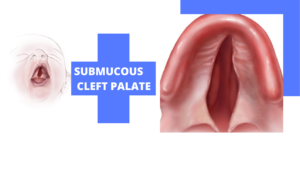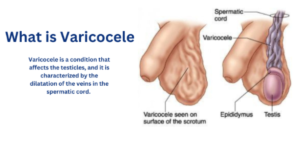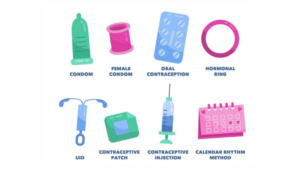Introduction to Adrenal PCOS
Polycystic Ovary Syndrome (PCOS) is a widely known condition, but what many people don’t realize is that there are different types of PCOS. One of the lesser-known variations is Adrenal PCOS, which can be confusing and misunderstood. It’s essential to address common myths surrounding Adrenal PCOS to help people understand it better. Adrenal PCOS primarily involves the adrenal glands, not just the ovaries. Understanding the truth about Adrenal PCOS can lead to better management and a healthier lifestyle for those affected.
Table of Contents
Common Myths about Adrenal PCOS
Myth 1: Adrenal PCOS is the same as Ovarian PCOS
One of the biggest misconceptions about Adrenal PCOS is that it’s the same as Ovarian PCOS. While both conditions fall under the PCOS umbrella, the causes are different. Ovarian PCOS primarily involves the ovaries, while Adrenal PCOS stems from issues with the adrenal glands. The adrenal glands produce hormones such as cortisol and adrenaline, and an imbalance in these hormones can trigger PCOS-like symptoms.
Myth 2: Adrenal PCOS Only Affects Fertility
Many believe that PCOS, including the adrenal variety, only impacts fertility. This is far from the truth. While fertility challenges can arise due to hormone imbalances, Adrenal PCOS can affect various aspects of health, including weight, mood, and overall energy levels. It’s essential to recognize that Adrenal PCOS has far-reaching effects beyond fertility.
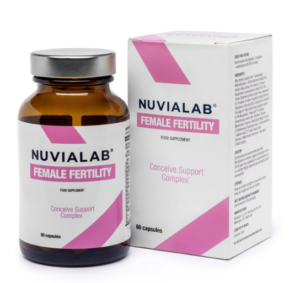
Myth 3: Weight Loss Solves Adrenal PCOS
It’s commonly believed that weight loss can “cure” PCOS, including Adrenal PCOS. While maintaining a healthy weight can help manage symptoms, it does not eliminate the condition. Adrenal PCOS, in particular, is not solely dependent on weight. It involves complex hormonal imbalances that require a multifaceted treatment approach, including stress management, dietary changes, and possibly medical intervention.
Myth 4: Adrenal PCOS Only Affects Women
Although PCOS is primarily diagnosed in women, it’s a myth that men cannot experience symptoms related to adrenal dysfunction. Hormonal imbalances in men can lead to similar issues, such as weight gain, fatigue, and mood swings. Adrenal dysfunction can affect both genders, and recognizing this is important for addressing the condition holistically.
Myth 5: Hormonal Treatments are the Only Solution
Another common myth is that hormonal treatments are the only way to manage Adrenal PCOS. While hormone therapy can help some individuals, there are other effective treatment options, including lifestyle modifications and natural remedies. Stress reduction, regular exercise, and a balanced diet are critical for managing symptoms, especially for those with adrenal-related issues.
Causes of Adrenal PCOS
Adrenal Gland Function and its Role in PCOS – The adrenal glands play a significant role in managing the body’s response to stress. In Adrenal PCOS, these glands produce an excessive amount of androgens, or male hormones, leading to symptoms such as hair thinning, acne, and irregular periods. Understanding how these glands function is key to managing the condition effectively.
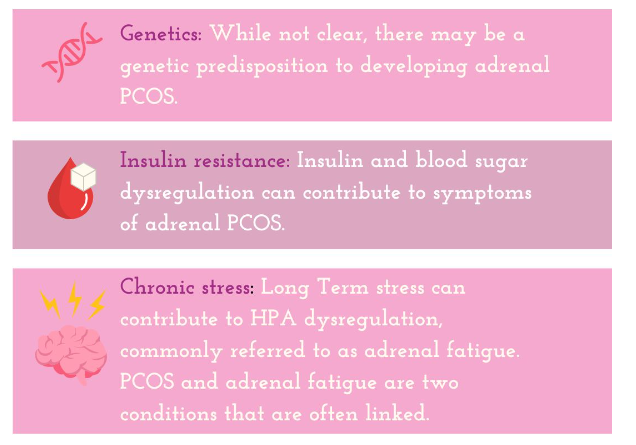
The Connection between Cortisol and PCOS – Cortisol, often called the “stress hormone,” is produced by the adrenal glands. In cases of Adrenal PCOS, the body’s cortisol production can become dysregulated, leading to an increase in androgen production. This hormonal imbalance is one of the primary causes of the symptoms seen in Adrenal PCOS.
The Impact of Stress on Adrenal PCOS – Stress has a profound effect on the adrenal glands, and in people with Adrenal PCOS, chronic stress can exacerbate symptoms. High levels of stress can cause the adrenal glands to overproduce cortisol, worsening the hormonal imbalance. Managing stress through relaxation techniques, exercise, and mindfulness can significantly improve symptoms.
Diagnosis and Treatment Options
How Adrenal PCOS is diagnosed – Diagnosing Adrenal PCOS involves a combination of hormone testing and symptom evaluation. A doctor will often test for elevated levels of cortisol and androgens to determine if the adrenal glands are the source of the imbalance. It’s crucial to differentiate between Adrenal PCOS and other forms of PCOS to ensure proper treatment.
Natural Remedies for Adrenal PCOS – Many individuals with Adrenal PCOS seek natural remedies to manage their condition. Adaptogens, such as ashwagandha and Rhodiola, can help regulate cortisol levels, while dietary changes can reduce inflammation and improve insulin sensitivity. Incorporating whole foods, reducing sugar intake, and managing stress are essential components of a natural treatment plan.
Medical Treatment Options for Adrenal PCOS – For those who require medical intervention, there are various options available. Hormonal treatments, such as birth control pills, can help regulate menstrual cycles, while medications like spironolactone can reduce androgen levels. In some cases, cortisol-lowering drugs may be prescribed to address adrenal dysfunction directly.
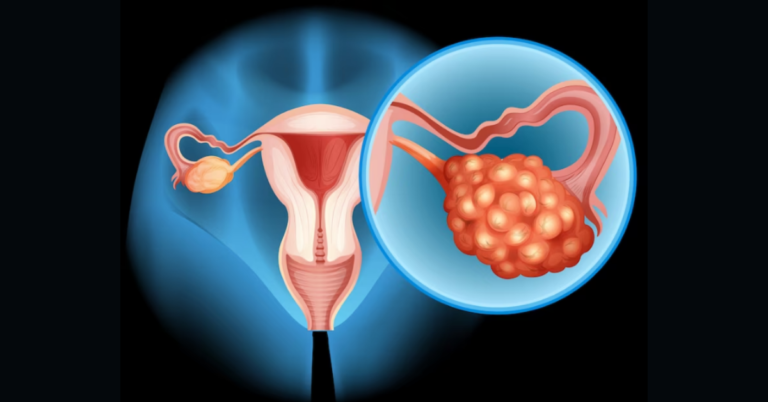
Long-Term Effects of Ignoring Adrenal PCOS
Health Risks of Untreated Adrenal PCOS – Ignoring Adrenal PCOS can lead to severe long-term health consequences. Individuals with untreated PCOS are at a higher risk for type 2 diabetes, heart disease, and other metabolic disorders. Additionally, chronic stress and hormonal imbalances can lead to mental health challenges such as anxiety and depression.
Lifestyle Changes to Manage Adrenal PCOS – Implementing lifestyle changes is critical for managing Adrenal PCOS. Regular exercise, stress management techniques, and a nutrient-dense diet can help balance hormones and reduce symptoms. Working with a healthcare provider to develop a personalized plan is the most effective way to manage the condition over the long term.
Frequently Asked Questions (FAQ’s)
Adrenal PCOS is a type of Polycystic Ovary Syndrome caused by hormonal imbalances related to the adrenal glands.
While PCOS is typically associated with women, adrenal dysfunction can cause hormonal imbalances in men as well.
No, while weight management can help with symptoms, Adrenal PCOS involves complex hormonal issues that require more than just weight loss.
Yes, chronic stress increases cortisol production, which can exacerbate the symptoms of Adrenal PCOS.
Yes, natural treatments like adaptogens, stress management, and dietary changes can help manage the condition.
It is diagnosed through hormone testing and a thorough evaluation of symptoms by a healthcare provider.
Hormonal treatments like birth control can help regulate menstrual cycles but may not address the underlying adrenal dysfunction.
Long-term risks include diabetes, heart disease, and mental health issues.
No, they are different; Adrenal PCOS is related to adrenal gland function, while Ovarian PCOS is related to ovarian issues.
While there is no cure, the symptoms can be managed effectively with the right treatment plan.
Explore My Recent Articles

Surprising Health Benefits of Honeycrisp Apples You Need to Know
Introduction Honeycrisp apples have become a popular choice due to their satisfying crunch, unique sweetness, and balanced tang. But beyond the taste, these apples are packed with nutrients that offer remarkable health benefits. The benefits

Okra Water: The Miracle Drink for Weight Loss, Skin, and Health You Need to Try!
Introduction Okra Water is creating a buzz in the world of wellness. Known for its simple preparation and impressive nutrient profile, this drink is being celebrated as a natural remedy with a host of benefits,

10 Proven Benefits of Bananas for Health and Well-being
Bananas are known for their natural sweetness, ease of peeling and rich nutrition. This makes them one of the most commonly consumed fruits in the world. Though bananas originated in Southeast Asia, they are now
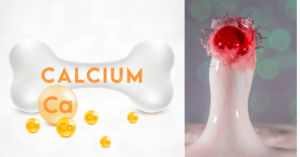
What to Do If You Have High Calcium Levels in Your Blood?
Introduction High calcium levels in the blood, also known as hypercalcemia, is a condition that can impact your overall health in multiple ways. When the body accumulates too much calcium, it can disrupt various systems,
